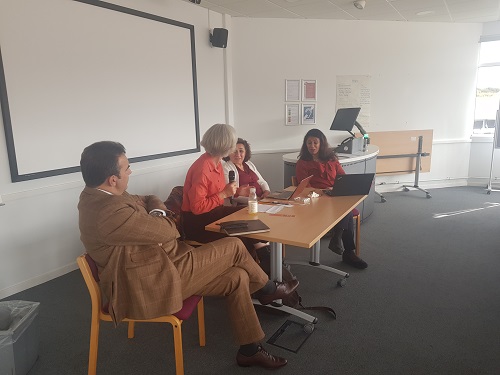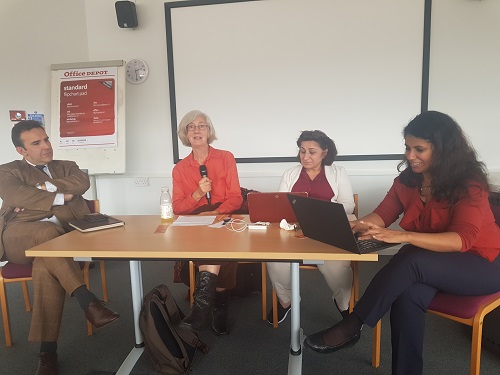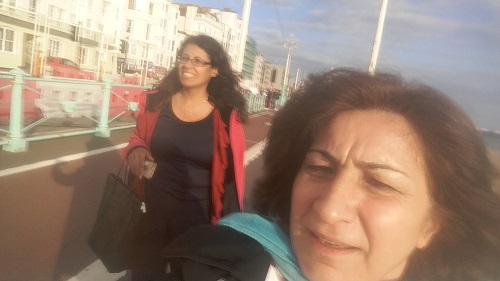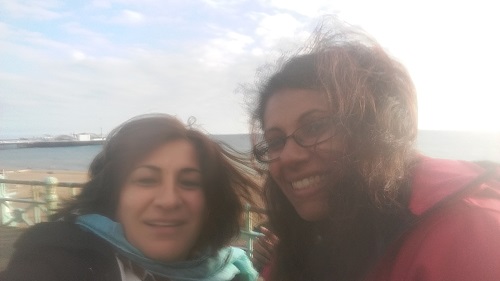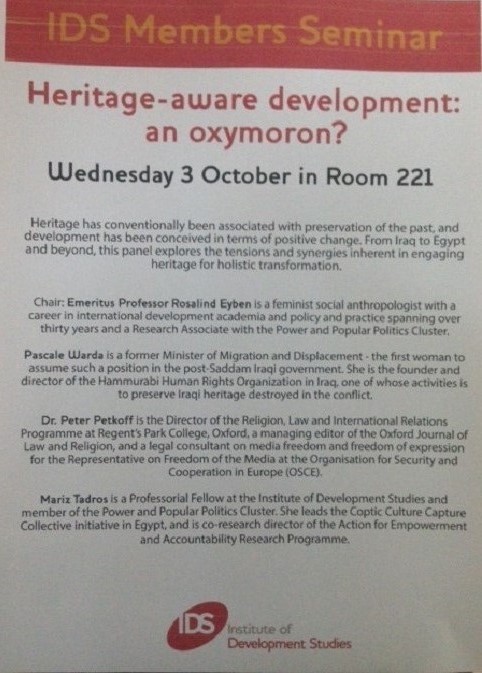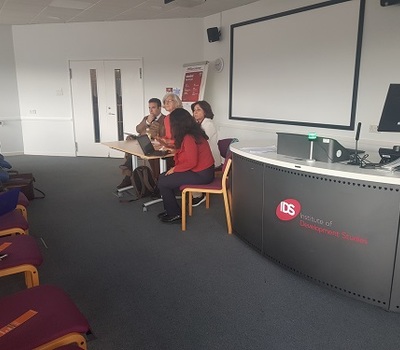
Mrs. Warda: Emphasis on humanitarian aspects promotes human creativity and safeguard rights
- Extensive discussion of Mrs. Warda's lecture within the seminar entitled "Heritage is an assistant factor for development"
Mrs. Pascale Warda, Chairwoman of Hammurabi Human Rights Organization HHRO, former minister of Migration and Displaced, member of Iraqi Women's Network, gave a lecture on October 3, 2018, on the subject of basic human rights and the relationship between heritage and human identity, with a central title: " Heritage as roots is the deep content embodied in identity " on one of the halls of the University of Sussex / Department of International Development Studies IDS in the city of Brighton, South Britain, and within the framework of a seminar entitled "Heritage is an assistant factor for development."
Mrs. Warda's participation in the seminar came at the invitation of Dr. Mariz Tadros, Professorial fellow at the Institute of Development Studies at the University of Sussex.
In her lecture, Mrs Warda concluded that human rights are indivisible and that human dignity is inalienable. The unity and integrity of the person are complementary and require respect without derogating from basic and fundamental rights at the same time as the right to adequate nutrition, adequate housing, good health, learning and work for self-realization and creativity in a free life where all necessary needs are met at the material, spiritual and intellectual levels.
At the same time, the human being has the possibility of enjoying all of the basic rights and freedoms that support the personal history in all his human heritage, on the emotional, psychological, intellectual, environmental levels etc.. This includes all that he lives through his country's cultures in his community and heritage from the past to the development of the present, which contributes closely to the development of mechanisms to make way for a more sophisticated future and cultural identity more peaceful reflecting positive aspects inside and outside the country , representing the advantages of human social heritage, which must be understood as one unit due to an objective understanding of the value of human being with a creative mind . Hence we can say that this is the reflective part of the identity of the (heritage), in another way we can say that heritage as roots is the deep content embodied in identity, It also connects intelligent and logical efforts to each other from the past and is related to the present. This is one of the characteristics of a reasonable person during the feeling of a person or group of pride and a sense of belonging to the specific social human heritage. The heritage is the result of human dynamism and so heritage must have a vital role in human evolution at all levels of physical, psychological, spiritual and cultural through the ages .. Describe the legal heritage and archaeology and literary arts and other creations, for example, and not exclusively live images of this fact. All this mental production of heritage can be supported in a way that enhances the ability of human intelligence and in this way contributes to the process of continuous community development, provided that the focus is on the positive aspects of it. This learning from the mistakes and negative aspects of the past and the present in memory, to indicate what reflects these negatives of ill, in order to benefit from it to continue developing the human capabilities, which are still not used very little.
Other lectures delivered by:
- Dr. Mariz Tadros, an Egyptian Coptic Academy of the Orthodox Church and a professor leading research at the Institute of International Studies at the University of Sussex in Britain, extracts about the Muslim Brotherhood in contemporary Egypt and redefines or restricts democracy and Copts at the crossroads and the challenges of resistance, revolutions and gender justice in Egypt.
- Dr. Peter Petkoff, Director of the Religion, Law and International Relations Program at Regent's Park College, Oxford, a Managing Editor of the Oxford Journal of Law and Religion and a Legal consultant on media freedom and freedom of expression for the Representative on Freedom of the Media at the Organization for Security and Cooperation in Europe (OSCE).
He explained the relationship of freedoms in the development of the popular heritage and the guarantee of those freedoms, leading to the development of societies in all fields.
The session was Chaired by Professor Roselind Eyben , a feminist social anthropologist with a career in international development academia, and policy and practice spanning over thirty years and a Research Associate with the Power and Popular Politics Cluster.
